Bhishma Ashtami Bhishma Pitamaha Left For Heavenly Abode At His Own Will In Kurushetra Haryana Magh Shukla Paksh January -February
Bhishma
From Wikipedia, the free encyclopedia
For other uses, see Bhishma (disambiguation).
|
In the epic Mahabharata, Bhishma (or Bheeshma or Devavrata or Bhishma Pitamah) was the eighth son of Kuru King Shantanu,[1] who was blessed with wish-long life and had sworn to serve the ruling Kuru king.[2] and grand uncle of both thePandavas and the Kauravas. An unparalleled archer and warrior, he once fought his own guru the mighty Parasurama and defeated him. He also handed down theVishnu Sahasranama to Yudhisthira when he was on his death bed (of arrows) in the battlefield of Kurukshetra.
Contents
[hide]Birth[edit]
The legend behind Bhishma's birth is as follows — once the eight Vasus("Ashtavasus") visited Vashishta's ashram accompanied by their wives. One of the wives took a fancy to Kamadhenu, Vashishta's wish-bearing cow and asked her husband Prabhasa to steal it from Vashishta. Prabhasa then stole the cow with the help of the others who were all consequently cursed by Vashishta to be born in the world of men. Upon the Vasus appealing to Vashishta's mercy, the seven Vasus who had assisted in stealing Kamadhenu had their curse mitigated such that they would be liberated from their human birth as soon as they were born; however, Prabhasa being protagonist of the theft, was cursed to endure a longer life on the earth. The curse, however is softened to the extent that he would be one of the most illustrious men of his time. It was this Prabhasa who took birth as Devavrata (Bhishma).
Vow of Bhishma[edit]
Bhishma means He of the terrible oath, referring to his vow of lifelong celibacy. Originally named Devavratha, he became known as Bhishma after he took thebhishama pratigya ('terrible oath') — the vow of lifelong celibacy and of service to whoever sat on the throne of his father (the throne of Hastinapur). He took this oath so that his father, Shantanu could marry a fisherwoman Satyavati — Satyavati's father had refused to give his daughter's hand to Shantanu on the grounds that his daughter's children would never be rulers. This made Shantanu despondent, and upon discovering the reason for his father's despondency,[2] Devavratha sought out the girl's father and promised him that he would never stake a claim to the throne, implying that the child born to Shantanu and Satyavati would become the ruler after Shantanu. At this, Satyavati's father retorted that even if Devavratha gave up his claim to the throne, his (Devavratha's) children would still claim the throne. Devavratha then took the vow of lifelong celibacy, thus sacrificing his 'crown-prince' title and denying himself the pleasures of conjugal love. This gave him immediate recognition among the gods. His father granted him the boon of Ichcha Mrityu(control over his own death — he could choose the time of his death, but he was not immortal, which would have been an even more severe curse and cause of suffering).
Criticism of King Shantanu from his subjects as to why he removed Bhishma from the title of the crown prince, as he was so capable, abounded. There was worry about the nobility of Shantanu's unborn children, now promised the throne. Hearing this, Bhishma said it was his decision and his father should not be blamed as Shantanu had never promised anything to Satyavati's father. The prime minister then asked who would be held responsible if the future crown prince isn't capable enough. Bhishma then took another vow that he would always see his father's image in whoever sat on the King's throne, and would thus serve him faithfully.
Years later, in the process of finding a bride for his half-brother, the young king Vichitravirya, Bhishma abducted princessesAmba, Ambika and Ambalika of Kashi (Varanasi) from the assemblage of suitors at their swayamvara. Salwa, the ruler ofSaubala, and Amba (the eldest princess) were in love; Salwa attempted to stop the abduction but was soundly beaten. Upon reaching Hastinapura, Amba confided in Bhishma that she wished to wed Salva. Bhishma then sent her back to Salwa, who, bitter from his humiliating defeat at Bhisma's hands, turned her down. Disgraced, Amba approached Bhishma for marriage. He refused her, citing his oath. Enraged beyond measure, Amba vowed to avenge herself against Bhishma even if it meant being reborn over and over again.
Amba sought refuge with Parasurama, who ordered Bhishma to marry Amba, telling Bhishma it was his duty. Bhishma politely refused saying that he was ready to give up his life at the command of his teacher but not the promise that he had made. Upon the refusal, Parasurama called him for a fight at Kurukshetra. At the battlegrounds, while Bhishma was on a chariot, Parasurama was on foot. Bhishma requested Parasurama to also take a chariot and armor so that Bhishma would not have an unfair advantage. Parasurama blessed Bhishma with the power of divine vision and asked him to look again. When Bhishma looked at his guru with the divine eyesight, he saw the Earth as Parasurama's chariot, the four Vedas as the horses, the Upanishads as the reins, Vayu (wind) as the Charioteer and the Vedic goddesses Gayatri, Savitri, and Saraswati as his armor. Bhishma got down from the chariot and sought the blessings of Parashurama to protect his dharma, along with permission to battle against his teacher. Pleased, Parashurama blessed him and advised him to protect his vow as Parasurama himself had to fight to uphold his word as given to Amba. They fought for 23 days without conclusion, each too powerful to defeat the other.
In one version of the epic, on the 23rd day of battle, Bhishma attempted to use the Prashwapastra against Parashurama. Learned in his previous birth as Prabhasa (one of Ashta Vasus), this weapon was not known to Parasurama and would put the afflicted to sleep in the battlefield. This would have given Bhishma the victory. Before he could release it, however, a voice from the sky warned him that "if he uses this weapon it would be a great insult towards his Guru." Pitrs then appeared and obstructed the chariot of Parashurama, forbidding him from fighting any longer. The spirit of Parashurama's father, Jamadagni and his grandfather, Rucheeka, spoke to him:
In the end, the Gods showered praise on Bhishma, and he sought the blessing of Parashurama as his guru. The avatar then acknowledged that his former student was truly invincible, telling Amba:
However, Amba refused to listen to Parashurama's advice and left, angrily declaring that she will achieve her objective byasceticism. Her predicament unchanged, did severe penance to please Lord Shiva. Lord Shiva assured her that she would be born as a man named (Shikhandi) in her next birth (and still she would recall her past) and could be instrumental in Bhishma's death, thus satisfying her vow.[4]
- Ful details regarding the birth of Bhishma are available in the Wikipedia article on Shantanu who was the father of Bhishma.
Personality[edit]
Bhishma had stature and personality that in those times were fit for kings. He was a true Kshatriya as well as a disciplined ascetic - a rare combination. Like a true Kshatriya, he never unnecessarily exhibited passion and anger. A symbol of truth and duty, the benevolent Bhishma was in all senses a true human. He saw a life full of loneliness, frustration and sadness. But that was how Vashishta's curse was supposed to unfold. Bhishma's human birth was destined to be marked with suffering, and that was how his life transpired right till the last moment; even his death. But the character which he possessed ensured that he never shied away from his duty, and never stopped loving those dear to him.
Skills, talents, and achievements[edit]
Bhishma was not only an invincible warrior, but also highly skilled in political science. He had all the qualities and abilities fit for an excellent king. His goodness and sacrifice made him one of the greatest devotees of Lord Krishna himself. He tried his best to bring reconciliation between Pandavas and Kauravas to prevent the war. Even in the Kurukshetra war while he was the general he tried his best to keep the war low key by minimising confrontation between the two camps. Even as he fell he tried to use the opportunity to persuade both camps to put an end to the war. After the war, while on his deathbed he gave deep and meaningful instructions to Yudhishthira on statesmanship and the duties of a king.
In the Mahābhārata War[edit]
Bhishma is the one who witnessed the Mahābhārata completely from the beginning since the rule of Shantanu.
In the great battle at Kurukshetra, Bhishma was the supreme commander of the Kaurava forces for ten days compared to Drona's five, Karna's two and Shalya's one (the last day). He fought reluctantly on the side of the Kauravas; nevertheless, he gave it his best effort. At one stage Arjuna's disinclination to fight him, nearly made Krishna break his vow of not raising a weapon in the war. Not even Arjuna was able to defeat Bhishma because in addition to being a peerless warrior he was blessed with choosing the moment of his death.
In this war, Bhishma vowed not to kill any of the Pandavas, as he loved them, being their grandsire. Duryodhan often confronted Bhishma alleging that he was not actually fighting for the Kaurava camp as he wouldn't kill any Pandava but would let them kill Kauravas. But in fact, Bhishma was the strongest barrier that had protected the Kaurava camp from impending defeat.
The war was thus locked in a stalemate. As the Pandavas mulled over this situation, Krishna advised them to visit Bhishma himself and request him to suggest a way out of this stalemate. Bhishma knew in his heart that the Pandavas were righteous and chaste, and that he stood as the greatest obstacle in their path to victory, so when they visited Bhishma, he told them that if faced by another gender that is a gender which has both features of a male and female in battle he would cease to fight and not lift weapons against her.
The Pandavas were initially not agreeable to such a ploy, as by bringing such a gender to the battleground they would disgrace themselves, but Krishna suggested a clever alternative. And thus, on the next day - the tenth day of battle - Shikhandiaccompanied Arjuna on the latter's chariot and they faced Bhishma who put his bow and arrows down. He was then felled in battle by a reluctant, ashamed and tearfulArjuna, pierced by innumerable arrows. As Bhishma fell, his whole body was held above the ground by the shafts of Arjuna's arrows which protruded from his back, and through his arms and legs. Seeing Bhishma lay on such a bed of arrows humbled even the gods who watched from the heavens in reverence, silently blessed the mighty warrior. When the young princes of both armies gathered around him, inquiring if there was anything they could do, he told them that while his body lies on the bed of arrows above the ground, his head hangs unsupported. Hearing this, many of the princes, both the Kaurava and the Pandava brought him pillows of silk and velvet, but he refused them. He asked Arjuna to give him a pillow fit for a warrior. Arjuna then removed three arrows from his quiver and placed them underneath Bhishma's head, pointed side upwards. To quench the war veteran's thirst, Arjuna shot an arrow into the earth, and a jet stream of water rose up and into Bhishma's mouth. It is said that Ganga herself rose to quench her son's thirst.
Strategic Formations: the Vyuha[edit]
Bhishma was well versed with tactical formations of the military in those days and only Drona, Krishna, Karna, & Arjuna could be compared to the vast knowledge that Bhishma possessed. A few formations mentioned in the epic Mahabharataare listed.
- Krauncha Vyuha: the crane-shaped formation of an army; forces are distributed to form spanning wing-sides, with a formidable, penetrating center depicting the stork's head and break.
- Padmavyuha or the Chakra Vyuha: a winding, ever-rotating circular formation; considered impenetrable during the Mahabharata age by all warriors except Arjuna, Bhisma, Drona, Krishna, Pradyumna, Aniruddha and Abhimanyu. Abhimanyu, had learnt how to break into the formation (in the womb of Subhadra) but not how to break out of it and is trapped inside in the Mahabharata war.
- Sarpa Vyuha: winding snake formation.
- Makara Vyuha: Crocodile Formation
- Sakata Vyuha: Cart Formation
- Shukar Vyuha: Pig Formation
- Vajra Vyuha: Diamond or Thunderbolt Formation
Death[edit]
The relation between Bhishma and Pandavas/Kauravas is described as that of a grandsire.
Their descendence was in the following generations
- Maharaj Hastin (founder of the Hastinapur empire)
- (Many generations)
- Kuru
- Dushyant
- Bharat
- (many generations)
- Shantanu
- Bhishma, Chitrangada, Vichitraveerya
- Dhritarashtra & Pandu & Vidur
- Pandavas & Kauravas
But practically, Bhishma and the Pandavas would be three generations apart as Bhishma was himself a prince of marriageable age when his father Shantanu married Satyavati, so Chitrangad and Vichitravirya were more like sons than brothers to Bhishma. When both Chitrangad and Vichitravirya died heirless, Maharshi Ved Vyas was called upon to revive the lineage. Then Dhritarashtra, Pandu and Vidura were born. The Pandavas and Kauravas were the next generation, so although addressed as grandfather, Bhishma was equivalent to their Great-Grandfather.
When Bhishma died, he was the eldest living ancestor to the equivalent of 5 generations as the Pandavas themselves were grandparents. Their only living heir was Parikshit, Arjuna's grandson, the son of Abhimanyu and Matsya princess Uttara.
As the Kauravas were losing the battle, Duryodhana approached Bhishma one night and accused him of not fighting the battle to his full strength because of his affection for the Pandavas. Bhishma, greatly angered, immediately picked up five golden arrows and chanted mantras declaring, "Tomorrow I will kill the Pandavas with these five golden arrows." Duryodhana, not having faith in Bhishma's words, asked Bhishma to give him custody of the five imbued golden arrows saying that he would keep them with him and return them the next morning.
Long before, when Pandavas were in living in the forest, Duryodhana once came to the forest to flaunt his material opulence in contrast with the Pandavas who were living in exile due to his wicked usurption of their kingdom, thus displaying his venom and hubris. He placed his camp on the opposite side of a pond where the Pandavas used to stay. Once, while he was taking bath in that pond, the heavenly princes, named Gandharvas, came to take a bath.
Duryodhana could not tolerate this; he had a fight in which the Gandharvas captured him. On the request of Yudhisthir, Arjuna saved Duryodhana and set him free. Duryodhana was ashamed, but being a kshatriya, he asked Arjuna what benediction or boon he would like. Arjuna replied that he would ask for the boon later when he needed it.
It was during that night that Krishna reminded Arjuna of his unsatisfied boon and told him to go to Duryodhana and ask for the five golden arrows. When Arjuna came and asked for the five golden imbued arrows, Duryodhana was shocked, but knowing full well his honour and duty as a kshatriya declared, "I will give you the five golden arrows. But can you please tell me who told you the five golden imbued arrows existed in the first place?" Arjuna replied with a smile, "Who else other than Shri Krishna could have advised me?" Afterwards, Duryodhana honourably kept his word and gave the five golden arrows imbued with a lifetime of austerity and power by Bhishma. Later, Duryodhana broke his customary manner and conceded to himself privately, "All of the rishis say Krishna is the Supreme God, maybe they are right." Being shocked and convinced by Arjuna's knowledge of the very existence of the five golden arrows, Duryodhana secretly got on his knees and said a quick prayer to Krishna.
Duryodhana again went to Bhishma, informing him of all that happened and requesting another five golden imbued arrows. To this Bhishma laughed and replied, "That is not possible, child. The will of the Lord is Supreme and undeniable. I have already spent the merits of my lifetime of celibacy and austerity in those five arrows, a potency strong enough to end all the five Pandavas. However, Krishna, being the Supreme Lord has foreseen this, knowing past, present, and future as He alone can, and has thus arranged for you to voluntarily give up the five golden arrows, imbued with the power and potency of my lifelong austerities. I cannot imbue another five arrows, having spent all of the merits of my austerities. However, tomorrow I shall fight like a lion, and this time, either I will kill Arjuna or I will make Lord Krishna break His promise of not picking up any weapons during the war." On the next day there was an intense battle between Bhishma and Arjuna. Although Arjuna was very powerful, he was no match for Bhishma. Bhishma soon shot arrows which cut Arjuna's armour and then also his Gandiva bow. Arjuna was helpless before the wrath of the grandsire.
As Bhishma was about to kill Arjuna with his arrows, Lord Krishna threw down the chariot reins and jumped off the chariot onto the battlefield, lifted a chariot wheel and charged Bhishma. Arjuna tried to stop Lord Krishna, but the Lord said, "In order to protect my devotee, I must break my own promise." However, this is actually a double entendre. Krishna, one who was a perfect Yogi and in control of senses including anger, lifted the Chariot Wheel in order to respect and uphold Bhisma's promise and word, as the latter promised he would make Krishna yield weapons (source: Satsung CT).
Eventually, however, Arjuna convinced Krishna to return to the chariot and put down the wheel, promising to redouble his determination in the fight. All the while Bhishma stood with folded palms and tears in his eyes, awed by the beauty of the wrath of the Lord and the intense love that God bears for his friends, so great that He is willing to endure the censorship of ignorant foolish men. Later the Lord told Arjuna how he could bring down the old grandsire, through the help of Sikhandhi. Using Sikhandhi as a shield, Arjuna shot arrows at Bhishma, piercing his entire body. Thus, finally, Bhishma gave up the fight, focusing his life force and breath, sealing the wounds, and waiting for the auspicious moment to give up his body.
It's said that once Bhishma fell down pierced with arrows he was feeling thirsty. Duryodhana went to fetch water, but Arjuna shot an arrow at the ground and water came pouring out directly into Bhishmas mouth. It's actually river goddess Ganga coming to satisfy the thirst of her son Bhishma.
Legacy[edit]
Bhishma is often considered as a great example of devotion and sacrifice. His name itself is an honour to him, Bhishma which means great and Pitamah which means Grandfather which combined means Great Grandsire.
Films[edit]
His life has been made into many films in different Indian languages. The first silent film was made in 1922. During talky period, the first film was made in Hindi (1937). It was followed by Bengali film in 1942 directed by Jyotish Bannerjee. Jahar Ganguli played the title role.
National award winning actor Mithun Chakraborty played Bheesma in the movie Bheesma in 1996.
In Telugu cinema, two films are made. The first film on Bhishma was made in 1944 directed by Chitrapu Narayana Rao. Jandhyala Gourinatha Sastry played the role of Bhishma. The life of Bhisma is made again as a highly popular Telugu film by B. A. Subba Rao in 1962. It was titled Bhishma. The title role is played by veteran Telugu film actor N. T. Rama Rao. It was big commercial hit with some memorable songs. Music score provided by Saluri Rajeswara Rao.
Bhishma's character was played by Mukesh Khanna in the B.R.Chopra's Mahabharat, one of the most successful Hindi television series. Arav Chaudhary also played the role of Bhishma in Star Plus' Mahabharat.
- Modern References
The tank T-90 Main Battle Tank acquired from Russia for the Indian Army is named after Bhishma.[5][6]
See also[edit]
- Vishnu sahasranama - The Thousand names of the Transcendental
References[edit]
- ^ Manish Verma (2000). Fasts and Festivals of India. Diamond Pocket Books (P) Ltd. pp. 73–. ISBN 978-81-7182-076-4. Retrieved 13 June 2012.
- ^ a b "Bhishma". Encyclopedia for Epics of Ancient India. Retrieved 17 April 2012.
- ^ a b Vyasa, Krishna-Dwaipayana; Ganguli, Kisari Mohan (1883–1896). The Mahabharata. Sacred Texts.
- ^ Kisari Mohan Ganguli. "SECTION CLXXXIX". The Mahabharata, Book 5: Udyoga Parva. Sacred-texts.com.
- ^ Robert Jackson (1 March 2007). Tanks and Armored Fighting Vehicles. Parragon Incorporated. pp. 295–. ISBN 978-1-4054-8664-4. Retrieved 24 June 2012.
- ^ S. Muthiah (2008). Madras, Chennai: A 400-year Record of the First City of Modern India. Palaniappa Brothers. pp. 288–.ISBN 978-81-8379-468-8. Retrieved 24 June 2012.
http://sacred-texts.com/hin/m06/m06059.htm
External links[edit]
| Wikimedia Commons has media related to Bhishma. |
- Persons and Stories from Mahābhārata
- Small Story showing Bheeshma's greatness

Bhishma Dwadasi, or Bhishma Dvadasi, is observed on the 12th day in the month of Magha (January - February) during the Shukla Paksha (waxing phase of moon). Bhisma Dwadasi is also known as Magh Shukla Dwadasi. It is widely believed that Pandavas performed the last rites of Bhishma, the son of King Shantanu and Ganga in Mahabharata, on this day
Bhishma Dwadashi is an auspicious Dwadasi vrata observed on Shukla Paksha dwadasi in Magh month. It marks the end of Bhishma Panchak Vrata which begins on Bhishma Ashtami. Devotees who have started their Ekadashi vrata would break their fast on Bhishma Dwadashi by performing special puja to Lord Vishnu. Reciting Vishnu Sahasranama stotram and performing Vishnu puja are the best rituals to observe on Bhishma dwadasi.
Worship of Bhishma Dwadshi
A person should take a bath on this day and keep a fast before worshipping Lord Laxminarayana. He is worshipped with fruits, banana leaves, supari, pan, til, moli, roli, kumkum etc. Panchamrit is made with milk, honey, banana, ganga jal, tulsi and sweets. Prasad is made by mixing wheat and sugar together and roasting them.
After Laxminarayana puja, other devi-devas are worshipped. Charnamrit and Prasad are worshipped among everyone after the puja. A person should take a bath in the morning and worship Lord Vishnu. Donations and charities to Brahmanas should also be made. This provides blessings and a person is blessed with a child, wealth etc. Later on, food should be eaten with the family and prayers should be offered to the Lord asking for his blessings, salvation etc.
Bhishma Dwadashi Story
A legend is famous about Bhishma Dwadashi. According to this legend, Shantanu's wife Ganga gave birth to a son named, Devvrat. She left Shantanu after giving birth to this child. Shantanu was depressed because of this for a long time. After some time, Shantanu wanted to cross river Ganga and sat in boat. The boat belonged to a girl named, Matsyagandha.
Matsyagandha was later famous by the name, Satyawati. Shantanu was spell bound by the girl's beauty and asked for her father's permission to marry her. Satyawati's father had one condition. It was that her son would be Shantanu's successor to the throne.
Shantanu did not accept this condition but was disturbed. Seeing his father disturbed, Devvrat swore of not to marry a girl his whole life. Listening to this, Shantanu blessed him with a boon that allowed him to accept death on his own terms. Due to this, Devvrat came to be known as Bhishma Pitama.
During Mahabharata, Bhishma Pitama fought from the side of the Kauravas. Due to his skills, Kauravas started winning the battle. Lord Krishna then sends Shikhandi in front of him. Due to Bhishma Pitama's oath, he could not fight with Shikhandi and gave up his weapons. Seeing this, all the warriors attacked him with their arrows.
Bhishma Pitama didn't sacrifice his life because of the presence of Surya Dakshinayan. He sacrificed his life in the presence of Surya Uttarayan. He did this on the day of Ashtami in the Magh month. Magh month's Dwadashi has been decided as the day to worship him. Hence, this day is known as Bhishma Dwadashi. Ancestors are also worshipped on this day.
Significance of Bhishma Dwadashi
Keeping a fast on Bhishma Dwadashi provides a person with all the happiness and contentment. It relieves a person from all sins. Donations, charities etc to Brahmanas should also be made on this day. Bhishma Dwadashi is celebrated on the second day of Ekadashi in the Magh month's Shukla Paksha. Bhishma was told about this fast by the Lord who kept this fast with devotion and dedication. Hence, this day is known as Bhishma Dwadashi. Om Namo Narayanaya Namah and other such mantras should be recited to worship Lord Vishnu on this day. This relieves a person from all sins. KURUKSHETRA
| ||||||||||||||||||||||||||||||||||||||||||||||||||||||
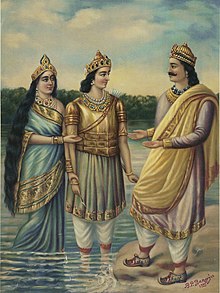
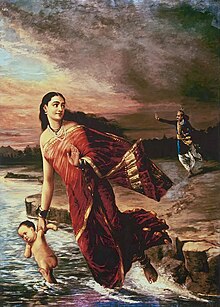
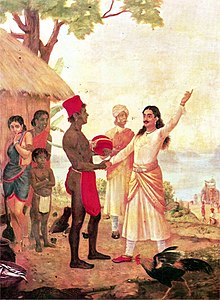

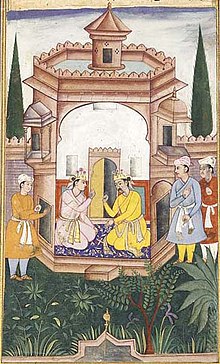
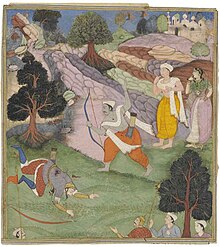


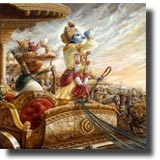
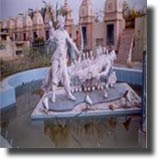
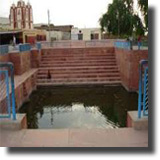
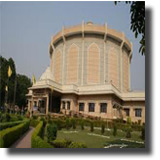
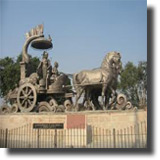
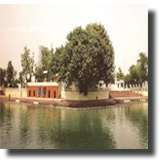


0 Comments:
Post a Comment
Subscribe to Post Comments [Atom]
<< Home